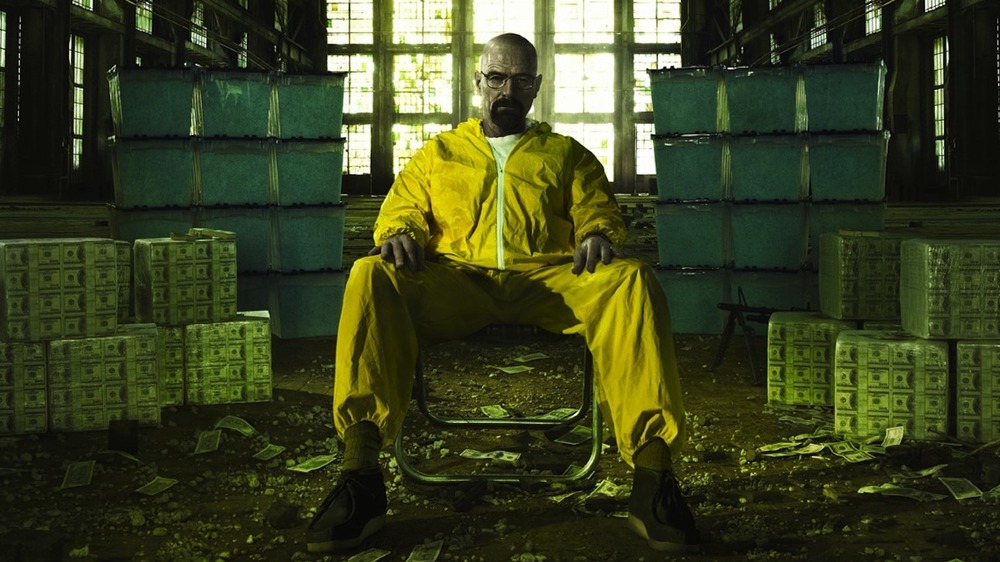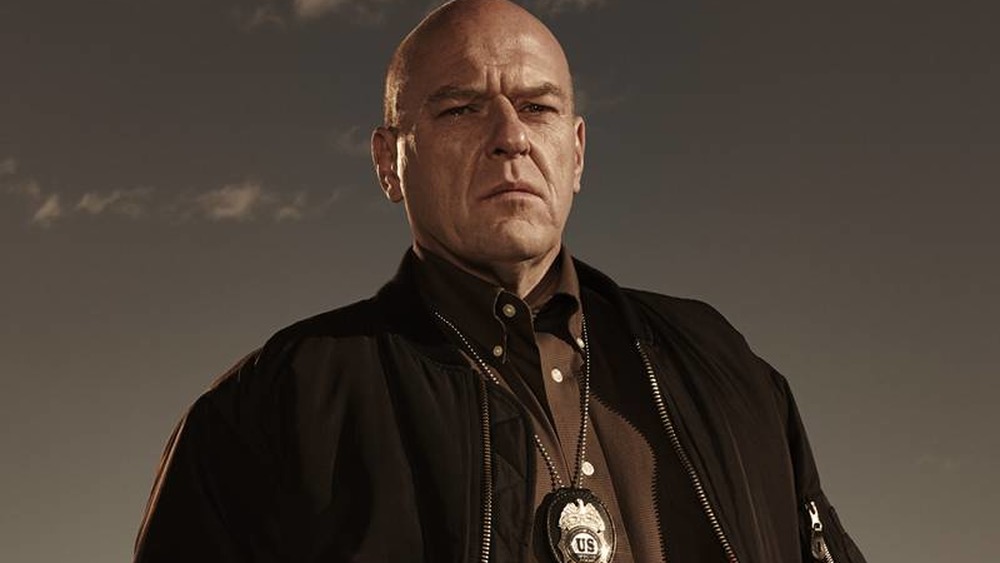The Breaking Bad Character Who Earned The Least Dirty Money
Breaking Bad has now been off the air now longer than it was on, but there's little question that the shadow of AMC's pulse-pounding crime drama continues to loom heavily over every small screen drama produced in its wake. There's good reason for that, as the Bryan Cranston-starring tale of a mild-mannered chemistry teacher turned meth kingpin literally changed the game in terms of television drama, earning critical raves for its harrowing storytelling, netting armfuls of Emmy Awards, and making stars of pretty much everyone involved.
Breaking Bad's breakout success undoubtedly lined the pockets of both cast and crew with fat stacks of Benjamins, too. Still, it's safe to assume no one involved with the series has ever made the kind of money which frequently exchanged hands throughout Breaking Bad's five-season run: that's because in the land of cartels, crime syndicates, and international meth-empires, such figures are almost too astronomical for the average viewer to fathom.
The folks at Screen Rant recently set out to calculate how much money the worst of the worst in the Breaking Bad landscape managed to pull in, through one criminal act or another. And while their list of the series' top money-makers understandably features heavy hitters like Gustavo Fring (Giancarlo Esposito), Lydia Rodarte-Quayle (Laura Fraser), Saul Goodman (Bob Odenkirk), and good ol' Walter White himself, it should surprise exactly no one that virtually every character on the show is listed as having their hands in some seriously dirty pots.
Said list also posits that a certain boisterous law man was one of the few Breaking Bad characters who did okay for themselves in spite of living life on the straight and narrow.
Hank was the most virtuous of Breaking Bad's top moneymakers
More so than Walt or any of his nefarious partners in crime, it's safe to assume Hank lived with a clearer conscious, generally choosing to do the right thing at work (save for that dust-up with Aaron Paul's Jesse), spending time with his doting — if a little nutty — wife (Betsy Brandt), and indulging in a Schraderbräu or two during his downtime. And even if Hank wasn't pulling in the seven-to-nine figure paydays assigned to the meth magnates and Cartel heavies he hunted, he actually made a decent enough living.
Per Screen Rant, an average law enforcement officer working for a government-funded agency can expect to bring in about $65,000 per year. It's worth noting that after years of noble service to the DEA, Hank earned himself a big-time promotion on Breaking Bad, getting bumped up from field agent to Special Agent in Charge, before his dusty grave was dug. This promotion came with a $100,000 a year payday.
Any die-hard Breaking Bad fan would be quick to tell you, of course, that virtue got Hank Schrader exactly nowhere in the end: Some might even say it earned the headstrong DEA man a shallow grave in the New Mexico desert, circa the show's iconic, soul-crushing season 5 episode, "Ozymandias." And given the perpetual danger Hank and his team often found themselves in, that sum hardly seems enough, a fact which is more than evinced by the financial straits Hank finds himself in during the earlier time period wherein he is shot (during his unfortunate suspension from the DEA) and endures a costly hospital recovery.
In spite of that clear risk vs. reward pay disparity, the noble-minded Hank never thought twice about putting his life on the line. If only he'd thought twice about Walt a bit sooner.

